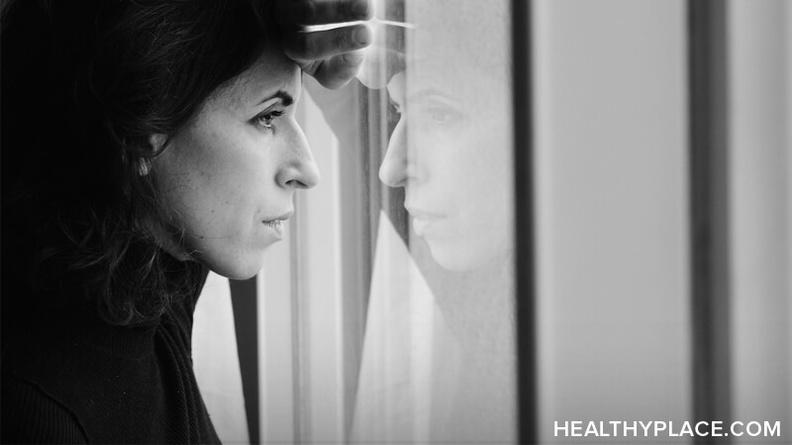ADHD Through A Woman's Lifecycle

Girls with ADHD are at risk for a lot of problems, yet many are undiagnosed. ADHD symptoms may appear different in girls and women, than in boys. Find out how ADHD affects girls and women and how to help.
The majority of writing and research on ADHD has traditionally focused on males, who were believed to make up 80% of all those with ADHD. Now more and more females are being identified, especially now that we are more aware of the non-hyperactive subtype of ADHD. Girls and women with ADHD struggle with a variety of issues that are different from those faced by males. This article will highlight some of those differences, and will talk about the types of struggles faced by females with ADHD.
Childhood issues for girls with ADHD
Let's read the recollections of two women with ADHD in childhood and adolescence. Marie is an introverted, "primarily inattentive" ADHD female, who has struggled with anxiety and depression, in addition to ADHD, both in childhood and in adulthood.
"The thing I remember the most was always getting my feelings hurt. I was a lot happier when I played with just one friend. When someone teased me, I never knew how to defend myself. I really tried in school, but I hated it when the teacher called on me. Half the time, I didn't even know what the question was. Sometimes I would get stomach aches and beg my mother to let me stay home from school."
-Marie, age 34
These recollections are very different from those of a typical elementary school aged ADHD boy. She was hypersensitive to criticism, had difficulty with the rapid give and take of group interactions, and felt socially "out of it" except in the company of her one best friend. Secondly, she was a compliant girl whose greatest desire was to conform to teacher expectations and not to draw attention to herself. Her distractibility caused agonizing feelings for her due to teacher disapproval and embarrassment in front of her peers.
Lauren's "hyperactive-impulsive" ADHD patterns are more similar to those seen in many ADHD boys. She also recalls being stubborn, angry, defiant and rebellious and physically hyperactive. She was also hypersocial. Although we don't yet have adequate statistics for patterns in ADHD girls, it seems likely that women like Lauren are in the minority when we examine ADHD patterns.
"I can remember in grade school that everything felt frantic. I had a fight with my mom almost every morning. At school I was always jumping around, talking and passing notes. Some of my teachers liked me, but some of them - the really strict ones - didn't like me. And I hated them. I argued a lot and lost my temper. I cried really easily too, and some of the mean kids in the class liked to tease me and make me cry.
Lauren, age 27
Although we see the argumentativeness and defiance in Lauren which we see more often in ADHD boys, we also see that, like many ADHD girls, she was hyper-social and hyperemotional. Life for Lauren, as for some other girls with ADHD, was an emotional roller coaster. She was very disorganized, and had very low tolerance for stress.
ADHD adolescent girls
Let's take a look at the recollections of Marie and Lauren during their adolescence. Life, for each of them, seemed to become even more difficult. Adolescence is difficult in general. When ADHD is added to the mix, problems are amplified and stresses are intense.
"High school just overwhelmed me. None of my teachers knew me because I never spoke up in class. Exams terrified me. I hated to study and write papers. They were really hard for me and I put them off to the last minute. I didn't date at all in high school. People didn't dislike me, but I bet if I went back to a class reunion that no-one would remember who I was. I was pretty emotional, and it got ten times worse just before my period."
Mariel, age 34
"I was totally out of control in high school. I was smart, but a terrible student. I guess I worked on being a "party animal" to make up for all the things I wasn't good at. At home I was angry, totally rebellious. I snuck out of the house after my parents went to sleep at night. I lied all the time. My parents tried to control me or punish me, but nothing worked. I couldn't sleep at night, and was exhausted all day in school. Things were bad most of the time, but when I had PMS I really lost it. School meant nothing to me.
Lauren, age 27.
Marie and Lauren present very different pictures during their teenage years. Marie was shy, withdrawn, a daydreamer who was disorganized and felt overwhelmed. Lauren was hyperactive, hyperemotional, and lived her life in a high stimulation, high risk mode. What do they show in common?
ADHD teens and severe premenstrual syndrome
In teenage years, the neurochemical problems caused by ADHD are greatly compounded by hormonal fluctuations. These combined dysregulated systems result in tremendous mood swings, hyper-irritability, and emotional overreaction.
Peer problems and ADHD girls
Girls with ADHD seem to suffer more as a result of peer problems than do boys with ADD. Although Lauren had many friends her emotionality got in the way repeatedly. Marie, by contrast, felt overwhelmed, withdrew, and felt most comfortable in the company of one close friend. Both, however, had a strong sense of "being different" from their peers.
Among impulsive-hyperactive girls - a sense of shame
Adolescent boys who are impulsive and hyperactive may be viewed as simply "sowing their oats." They may even gain much peer approval as they rebel against authority, or as a result of their hard drinking, fast driving, sexually active lifestyle. Girls tend to receive much more negative feedback from parents, teachers, and peers. Later, as young women, they often join the chorus of accusation and outrage, blaming themselves and feeling a strong sense of shame for their earlier behavior.
Ways to Help Girls with ADHD
Learning to establish a "quiet zone" in their life
Whether shy and withdrawn, or hyper and impulsive, these girls often feel emotionally overwhelmed. They need to learn stress management techniques from an early age, and to understand that they need emotional "time out" to regroup after an upset.
Try to minimize corrections and criticism
Too often parents, with the best of intentions, shower ADHD girls with corrections and criticisms. "Don't let them hurt your feelings like that.'" 'You'd forget your head if it wasn't' attached to your shoulders." "How do you expect to go to college with grades like that?" These girls, whether loud and rebellious, or shy and retiring, typically suffer from low self-esteem. Home is an important place to refuel, and to rebuild the confidence that is so frequently eroded during the day at school.
Help them look for ways to excel
Girls with ADHD typically feel that they are "not good at anything."Their distractibility, impulsivity and disorganization often results in mediocre grades. Likewise, they often don't have the stick-to-itiveness to develop skills and talents like many of their friends. Helping them to find a skill or ability, and then praising them and recognizing them for it are terrific positive boosts. Often the life of an adolescent girl with ADHD reaches a positive turning-point when she is lucky enough to find an activity to feel good about.
Special Issues Faced by Women with ADHD
The same themes, related to social and physiological differences between males and females with ADHD, play themselves out again as adolescent girls become women with jobs, marriages and families.
Social expectations
Being the support system
For a woman with ADHD her most painful challenge may be a struggle with her own overwhelming sense of inadequacy in fulfilling the roles she feels are expected of her by her family and by society. Both on the job and at home, women are often placed in the role of caretakers. While men with ADHD are advised to build a support system around themselves, not only do few women have access to such a support system, society had traditionally expected women to be the support system.
Dual-career stresses
The struggles for women with ADHD have been intensified with the emergence of "dual career couples." During much of the past two decades more and more women have been required to not only fulfill most if not all of the more traditional roles of wife and mother, but also to function efficiently and tirelessly as they juggle the demands of a full time career.
Single parenting
Divorce rates are close to fifty percent among all marriages in the United States. Divorce become even more likely when ADHD is added to the list of marital stressors. Following divorce, it continues to be predominantly the mothers who are left as primary parent for children. By adding ADHD to the huge burden of single-parenting, the result is often chronic exhaustion and emotional depletion.
Physiological differences - Hormonal fluctuations in women with ADHD
The hormonal fluctuations which commence at puberty continue to play a strong role the lives of women with ADHD. The problems they experience due to ADHD are greatly exacerbated by their monthly hormonal fluctuations. Some women report that the stresses of being the primary parent of children with ADHD while attempting to struggle with their own ADHD reaches crisis proportions on a monthly basis as they go through their premenstrual phase, often lasting as long as a week.
Although the number of older women yet identified with ADHD is small, it seems quite reasonable to assume that the hormonal changes associated with menopause would be expected to, once again, exacerbate ADHD symptoms of emotional reactivity.
What can women with ADHD do to manage their lives better?
Give yourself a break!
Often the biggest struggle is an internal one. Societal expectations have been deeply ingrained in many women. Even if a loving husband said "Don't worry about it," they would place demands upon themselves. Breaking out of a mold that doesn't fit can take time and effort. Psychotherapy with a therapist who really understands your ADHD issues may be enormously helpful to shed your impossible expectations of yourself.
Educate your husband about ADHD and how it affects you.
Your husband may feel anger and resentment toward an ill-kept house or badly-behaved children, assuming that you "just don't care." He needs to appreciate the full brunt of ADHD's impact upon you. Get him on your side, strategizing about ways to make your life at home more ADHD-accommodating, and ADHD-friendly.
It's only spilled milk!
Try to create an "ADHD-Friendly" environment in your home. If you can approach your ADD, and that of your children, with acceptance and good humor explosions will decrease, and you'll save more energy for the positive side of things.
Simplify your life.
You are probably overbooked and chances are your children are too. Look for ways to reduce commitments so that you're not always pressed and hurried.
Don't hang around women who can't understand your problems.
So many women describe friends or neighbors who make them feel terrible by comparison -- whose houses are immaculate, whose children are always clean, neat and well-behaved. Don't put yourself in situations which will send you back toward impossible expectations and negative comparisons.
Build a support group for yourself.
One woman with ADHD related that housework was such drudgery for her that she often couldn't bring herself to do it. One of her techniques, however, was to invite a friend, who shared similar tendencies, to keep her company while she completed some particularly odious task.
Build in "time-outs" daily.
Time-out's are essential when you have ADHD and are raising children. It's easy to not find time for them, though, because they require planning. Make them routine so that you don't have to keep planning and juggling. For example, ask your husband to commit to two blocks of time on the weekend when he will take the kids away from the house without you. Arrange for a regular baby-sitter several times a week.
Don't place yourself in burnout.
One mother of two ADHD children, who was doing a great job of parenting her children, was also able to recognize her limitations. With two such challenging children she arranged for summer sleep away camp for a month each summer. She also arranged for brief visits, one at a time, to grandparents. This allowed her to spend time with each son without his having to compete with his brother.
Eliminate and delegate.
Look at things that you require of yourself at home. Can some of these things be eliminated? Can you find a way to afford to hire to have some of them done?
Learn child behavior management techniques.
On the outside looking in it may be easy for other parents to judge you if your children misbehave. What any parent of an ADHD child knows is that they don't respond to the usual admonishments and limits the way non-ADHD kids do. You've got a super-challenging job.Get the best training you can find.There are numerous excellent books on behavior management techniques for children with ADHD.
Get help for PMS or Menopausal Symptoms
They are likely to be more severe than in other women. Managing the destabilizing effect of your hormonal fluctuations is a critical part of managing your ADHD.
Focus more on the things you love.
There are many aspects of keeping a house and raising children which are rewarding and creative. Look for positive experiences to share with your children. Women with ADHD who feel they are "driven crazy" by the frequent interruptions of their children, who need to take time alone to ease frayed nerves, who fear being labeled as "poor housewives" and "bad mothers" need to understand and accept themselves and their ADHD. They also need to be understood and accepted by their husbands, their families and friends. These are women with ADHD struggling valiantly against demands which are difficult if not impossible to meet. They need to learn not to measure their success in terms of made beds and washed dishes, but to celebrate their gifts - their warmth, their creativity, their humor, their sensitivity, their spirit. And they need to look for people who can appreciate the best in them as well.
About the author: Kathleen Nadeau, Ph.D. is co-editor and co-publisher of ADDvance, a magazine for women with Attention Deficit Disorder. She is also the director of the Chesapeake ADHD Center of Maryland.
This article has been taken, with permission, from the website for the National Center for Gender Issues and ADHD (NCGI), the only advocacy organization for women and girls with ADHD.
APA Reference
Staff, H.
(2021, December 20). ADHD Through A Woman's Lifecycle, HealthyPlace. Retrieved
on 2025, July 17 from https://www.healthyplace.com/adhd/women/adhd-through-a-womans-lifecycle





